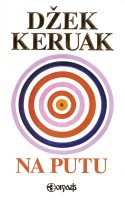Rich Skrenta assumes Google. He says that “everyone starts at Google,” therefore no one will start at your site. No one will type Wikipedia, Mahalo or Amazon. I grant that no one will type a complex URL filled with query strings and other detritus intended for reading by machines. But people will type simple names they can remember.
It’s the simple Investment / Value equation. Does Mahalo, or any site, provide more value than the cost of remembering its name and learning how to type it (or bookmarking it)? Today Mahalo probably doesn’t (Unless you want to learn how to speak French). Dave Sifry notes that people come to Technorati organically. That means they type the URL or use a browser bookmark. That’s because Technorati has dominance in its domain. If you want to know what the Blogs are saying on a topic, Technorati has the best results.
Mahalo has the best results for the SERPs that it has. As I’ve mentioned before, Mahalo responds to people who have questions. Google solves the I can’t remember the URL problem. It’s a tool to helps you track down the half remembered, the lost friend, the incomplete query. Through berrypicking behavior Google can lead you to your destination. However Mahalo’s results pages are better organized and more useful to people with questions. Their issue is can the write, edit and maintain enough pages to make the service interesting in the long run. Calacanis thinks they can maintain 25,000 pages. The interesting thing about this is it’s a talent and people management problem, not writing a better algorithm problem. Wikipedia has a similar structure, but it requires the management of volunteers—a more difficult task. The technology community doesn’t believe in this approach, programs are written to solve this kind of problem. People don’t scale. Developers solve problems for zero, one and infinity. Mahalo posits that there’s a number less than infinity that’s useful to people with questions.
Comments closed
